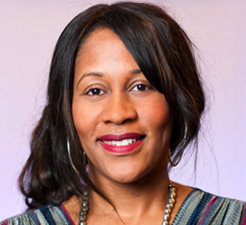MediaCom’s global boss Stephen Allan on standing up to disrespectful clients, what worries him about the future of media, and work-life balance
 Stephen Allan oversees 5,800 people in 106 offices in 86 countries for WPP media agency MediaCom, which was named media agency network of the year at the Festival of Media Asia Awards on Tuesday night.
Stephen Allan oversees 5,800 people in 106 offices in 86 countries for WPP media agency MediaCom, which was named media agency network of the year at the Festival of Media Asia Awards on Tuesday night.
In an interview with Mumbrella’s Asia editor Robin Hicks in Singapore – Allan’s third visit to Asia this year – the Brit talks about what winning awards means to media agencies, standing up to unreasonable clients, and why the days of global bosses visiting Asia to give the locals “a patronising pat on the head” are over.
MediaCom has just won Agency of the Year at Festival of Media Asia. Do you think media agencies care as much as creative agencies about awards these days?
I can’t speak for other agencies. But for me, awards are a way of benchmarking our work next to our competitors and our clients’ competitors. Awards are about seeing how our work stacks up against the rest; winning or not winning is an expression of everything you’ve done over the last year. Winning network of the year showed me that we’re getting great work out – and not just from one office. We had contributions from Singapore, India and Australia.
It is said that when global bosses are in town, they tend to trot out the same old phrases about Asia – that it shows potential, and is of high strategic importance. What is your take on Asia for MediaCom?
I’ve been in the global role since 2008, and during that time we’ve grown by 232 per cent. Yes, we were a lot smaller to start with, but now Asia Pacific is a quarter of our business globally. Now, there’s no way you can describe Asia as emerging or developing – it’s a major contributor to our business.
What’s your biggest market by revenue?
China followed by Australia.
How much bigger is China than Australia?
China is 50 per cent bigger than Australia.
Going back to your first question, GroupM forecasts that – for the first time ever – Asia Pacific ad spend exceeds North America and will grow by eight per cent this year – much faster than Western Europe or North America. If we continue to see growth in China, even if that growth is slower than in recent years, we expect Asia Pacific to soon make up 40 per cent of our business.
The days of global CEOs visiting the region to give Asia folks a patronising pat on the head are well and truly over.
The work that we’re doing in parts of this region are often better than in other regions. That’s best proven by looking at our key client relationships – P&G and Coke. Our leadership on those accounts is led by Asian people based in Asia.
If there is an area of the media agency business that is under the most scrutiny at the moment, it is probably agency trading desks. Do you think clients are right to be so concerned about ‘arbitrage’ (not declaring how much margin is made on the trading of digital media), something that GroupM’s trading desk Xaxis has been accused of?
I think that every agency is operating using different models, and I can’t comment on other agency practices. But clients are right to ask questions. And more importantly, what is the agency’s answer?
Xaxis is not a typical agency trading desk, in my view. It’s a provider of premium inventory and guarantees an audience and a price. A client has to opt in; we don’t force them to use it. A client goes in knowing what they’re paying and knowing what they get back. Hopefully Xaxis will prove the cost effectiveness of its product in time.
MediaCom, particularly in London, has a strong reputation for its culture and regularly features highly in polls of companies people want to work for. Can you export culture?
The answer is yes, you can – although there will be local interpretations and differences.
We talk about ‘People first, better results’. I wrote that line in 2003. We lived and breathed that ethos in London [Allan has worked at what is now known as MediaCom UK since 1982], which is about creating a great work place and a culture of learning and coaching. MediaCom in Australia also features in best companies to work for surveys. Can you take a philosophy and distribute it elsewhere? Yes. Do all offices do it equally well? Probably not.
One of the things I’m most proud of at MediaCom UK is the depth and breath of the business, and the core of people who have worked together for a long time. It’s not an old boys club, but we have a long pipeline of talent coming through the business. Nick Lawson followed me into the role of CEO of MediaCom UK. Jane Ratcliffe [MediaCom UK’s chairman] succeeded Nick, and Karen Blackett [MediaCom UK’s CEO] succeeded Jane.
Sir Alex Ferguson, who was probably the best football manager of all time, talks about bringing in talent in from the bottom up. It’s not about creating a great team, he says. It’s about creating a great club. That philosophy is what delivered those 38 trophies for Manchester United, and what brought the likes of Giggs, Beckham and Scholes through his system. Now, look at West ham. They had great talent like Frank Lampard, Michael Carrick and Rio Ferdinand. But they couldn’t keep them.
It’s critical to create a culture of learning and a business of opportunity. If smart people have nowhere to go within your company, they will leave. We have a business that is constantly growing, but we have to create new opportunities for our best people. I passionately believe that. And that approach is embeddable in any market.
When I look at our staff surveys, where our people can anonymously say they what really think about working here, you’d expect the first thing they talk about is money. But it isn’t. It is always about ‘What am I learning?’
In Asia, at times we find that there is a resentment towards companies that bring in expats. I get the sense that some people do not want foreigners coming into their market and taking local jobs, although at the same time these same people want the opportunity to work overseas. My argument in those situations is always that we have to look for the best talent wherever they’re from. I don’t care about the sex, religion or colour of any of my staff. The goal is to grow talent locally and constantly and get to the point where our Asian markets become net exporters of talent.
What excites you the most about the future of media over the next five years, and what worries you the most?
What excites me the most is addressability – by that I mean tackling the old cliché of not knowing which half of your advertising works. We’re moving away from that as we’re able to address people on a one to one basis. As a company, MediaCom no longer talks about ourselves as a media agency. We talk about ourselves as a content and connections agency. And by content, we mean anything from a tweet through to TV campaign.
I was asked recently if I was worried about the future of media agencies. Are we becoming irrelevant, as the industry embraces automated trading? I said that right now the whole world of communications is more complicated than it’s ever been. And every client I talk to says the same thing in different words – they need people who can work across the system rather than in silos and demystify media. They want solution providers, and that is what we are.
The greatest threat to our business is people. And by this I mean this industry losing its brightest to other industries. We are under other pressures, such as the rise of procurement, but we still have to be able to pay our people fairly. That comes about by being paid fairly by clients.
MediaCom Australia recently withdrew from a pitch for Pacific Brands. We took the decision not to participate. Mumbrella covered the news quite wellwithout getting anyone in a court room. Agencies have to get to a point where they can say no. Agencies can’t say yes to unprofitable business. If they do, it’s a race to the bottom.
Last year two young advertising executives in Asia – one in China and another in Indonesia, died – allegedly from overwork. Are young people in media being taken advantage of?
Those incidences are very sad. The first thing I’d say is that clients can be very demanding. Sometimes they don’t respect the right of their agency team to have a private life. As an employer, I’m not looking for people to be in the office until late at night. People who have a healthy personal life outside of work is a good thing; when they come back into office, they tend to be in a fresher state of mind.
Work-life balance tends to be a term that is used lightly, but we’re constantly looking at that. I have to rely on local management to ensure our people’s welfare is looked after. I wished I could look after 5,800 people individually, but anyone who knows me will say I’m the worse example of maintaining work-life balance, as I’m always on. But does that mean I expect the same from others? No. I don’t want people to be tired in the morning. Sometimes agencies fail in that regard, as the pressures of client deadlines and new business pitches can be very challenging.
I won’t tolerate unreasonable client behaviour. You have to stand up to clients, as it can get to the point of abuse. Occasionally you get the maverick kind of client. And I have to rely on my local management to eek out those situations. In those incidences, you have to be prepared to say no.
What is the hardest thing about your job?
The unknown. Working in one market, you usually know the score and what to expect. You understand the political infrastructure and economies at play. In a global job, you wake up and look at your inbox and never know what you’re going to find. There will always be good and bad news.
Yesterday, the first thing I noticed was an earthquake just outside Los Angeles – and we have office in Santa Monica. It was rude awakening, but everyone was ok, so it wasn’t so bad. In other markets, it could be flooding in Thailand, or something like we’ve seen in Ukraine. Or a client saying we’re going to review. It’s a rollercoaster and I take everything very personally. I care about everything, probably too much at times.




 Linkedin
Linkedin
Great honesty in this interview, thanks Stephen.
User ID not verified.
What a great perspective
User ID not verified.
Steven is my new hero.
http://youtu.be/PV5mXf9jsRk